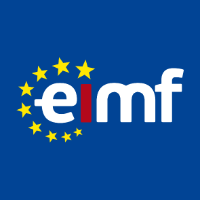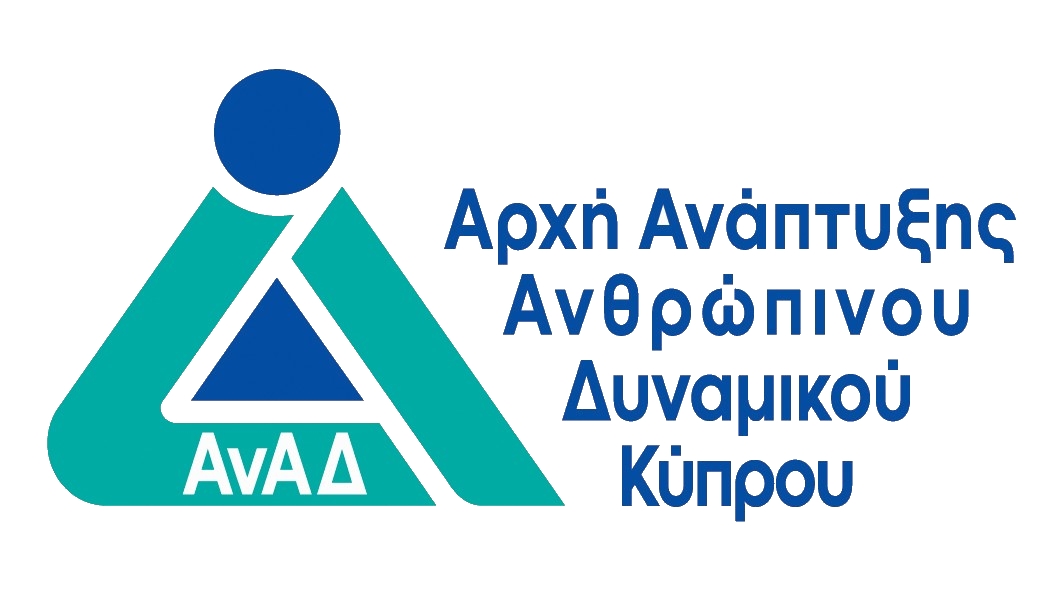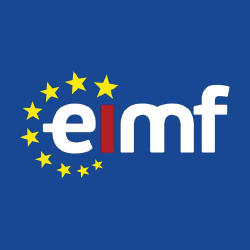
EIMF Certificate in Blockchain & Crypto-Assets: Regulation and Policy
- Χρηματοοικ. Ασφαλιστικά Τραπεζικά - Καινοτομία/ Start Ups - Πληροφορική - Επαγγελματίες IT

ΠΕΡΙΓΡΑΦΗ
Blockchain technology – the distributed platform that removes intermediaries from the equation and resolves the trust issue – has brought fundamental changes to almost all industries and business models by enabling novel ways of transacting. The technology brought tremendous challenges to established principles, rules, laws, and regulations and has captured the minds of digital innovators, the wider financial industry, regulators, and governments alike who are now facing increasing pressure to support innovation while ensuring that the regulations and policies needed to keep consumers and investors protected and hold stakeholders accountable for the communities they intend to serve, are in place.
Regulators around the world are trying to find an appropriate approach to regulate Blockchain’s use, applications and outcomes. Individuals and organisations should assess the related risks and legal and ethical challenges. Different countries approach or regulate the use of Blockchain in their own way, i.e. some countries are welcoming, others are cautious, or demonstrate resistance to apply the technology. Regulation, supervision, and global coordination will definitely enable the technology to be implemented properly and scale up. To ensure this, we need a harmonized and pro-innovation approach regarding blockchain regulation. Current developments point to that direction.
This course considers the emerging issues in the regulation of Blockchain technology and crypto-assets and examines the potential need for additional or adapted legislation Participants will understand that the wider the adoption of Blockchain technology across the world, the greater the innovation, which is vital for businesses and societies. Furthermore, the most important developments in relation to regulating the use of Blockchains and crypto-assets shall be discussed and assessed. The Markets in Crypto-Assets Regulation (MiCAR) is a prominent example of a blockchain- and crypto-asset-focused regime introduced at the EU level governing a wide scope of crypto-assets and crypto-asset services. Hence, the course will look at pieces of legislation that have already been introduced or are impending (EU and domestic) as well as initiatives, directives, views and positions of global bodies, key jurisdictions, different countries’ regulators and authorities.
ΣΚΟΠΟΣ ΣΕΜΙΝΑΡΙΟΥ
By the end of the programme, participants will:
- Understand what Blockchain is, how it functions and its features and characteristics
- Understand blockchain governance and be able to explore the various Consensus Mechanisms
- Understand Smart Contracts and Decentralised Applications (Dapps)
- Comprehend the legal classification of tokens
- Understand Tokens and Asset Tokenisation on blockchain
- Discuss about the Central Bank Digital Currency (CBDC)
- Explore the most important developments in relation to Blockchain and crypto – assets regulation (we discuss, among other, MiCAR, DLT pilot regime, Travel Rule and AML, regarding crypto-asset services)
- Become familiar with ICOs, STOs and other models of token offerings.
- Explore the Crypto-Asset Service Providers (CASPs) registration
ΣΕ ΠΟΙΟΥΣ ΑΠΕΥΘΥΝΕΤΑΙ
This course is suitable for people from all kinds of backgrounds who are interested in learning about Blockchain regulation and policy.
It is also ideal for:
- Lawyers (EU, third-country, other)
- Legal Service Professionals
- EU Lawyers and all Legal Services Professionals
- Legal Advisors, Legal Projects Managers and Legal Analyst
- Attorneys of the Republic
- Internal Lawyers (working in any legal department of an organization or government)
- Graduate/Junior Lawyers
- Law Students, Researchers, Drafters
- Compliance Managers/officers
- Financial advisors
- Government Agencies
- Managers of all Functions (HR, Projects, Strategy, Technology, Innovation)
- Corporate Administrators
ΠΕΡΙΣΣΟΤΕΡΕΣ ΠΛΗΡΟΦΟΡΙΕΣ
Training Outline
Introduction
- An overview of Blockchain Technology: What is it and how it works
- Blockchain Evolution
- Blockchain features and unique characteristics
- Smart Contracts
- Decentralized Applications (Dapps)
- Applications of Blockchain: Cryptocurrencies
Cryptocurrencies
- Crypto-Assets vs Cryptocurrencies
- Types of cryptocurrencies: Bitcoin, Altcoin, Stablecoins, CBDCs
- Tokensization and tokenised economy
- Legal Classification of Tokens:
– Fungible Tokens vs Non-Fungible Tokens (NFTs)
– Payment Tokens
– Utility Tokens
– Security Tokens
– Stablecoins
– MiCAR classification
– Interaction and relationship between MiCAR token classification and industry token classification
An overview of crypto-assets regulatory environments
- Why regulation matters?
- What are the issues policymakers and governments are worried about?
- They key actors in the space: International Bodies, Regional Bodies, Governmental Bodies
- Discussing selective regulatory initiatives (FATF Recommendations, European and Member States’ initiatives)
- The EU AML Legislative Package
- Proposal for the recast of Regulations (EU) 2015/847 expanding traceability requirements to crypto-assets (TFR) – travel rule regulation
- Markets in Crypto-Assets Regulation (MICA Regulation)
- DLT Pilot regime for market infrastructure
- Digital Operational Resilience Act (DORA)
- Instant payments regulations
- A revised Payment Service Directives (PSD2): PSD3
- Cyprus Blockchain Strategy
- Cyprus Blockchain Regulatory Environment
- Central Bank Digital Currency (CBDC) – A digital Euro?
Initial Coin Offerings (ICOs) and Securities Token Offerings (STOs)
- Initial Public Offering (IPO) Vs Initial Coin Offering (ICO)
- Initial Coin Offering (ICO) and Security Token Offering (STO)
- Use case: real estate tokenisation
- What is an ICO and what it involves: Risks and Warnings
- The legal process of issuing an ICO or STO
- Other models of token offerings
- Legal, regulatory and technical challenges
Training Style
The programme is designed to deliver theoretical knowledge mainly via two (2) sessions of live online training course supported by power-point presentations. This course aims at delineating what is Blockchain and how it works by providing an in-depth understanding.
Knowledge Test
At the completion of the knowledge areas, participants will be assessed via the form of Multiple-Choice Questions which will consist of questions related to the material taught. The aim of the assessment is to examine participants’ overall attention and knowledge of material taught as well as their competencies towards the implementation of practical cases.
CPD Recognition
This programme may be approved for up to 14 CPD units in Blockchain and Financial Regulation. Eligibility criteria and CPD Units are verified directly by your association, regulator or other bodies which you hold membership.
For the CySEC requirements, CPD units attained from this course should not exceed the 50% of the total CPD Units of each individual.
Πληροφορίες Εκπαιδευτή
Αναλυτικό Κόστος Σεμιναρίου
Για Δικαιούχους ΑνΑΔ
- € 560.00
- € 280.00
- € 0.00
- € 280.00
- € 280.00
Για μη-Δικαιούχους ΑνΑΔ
- € 560.00
- € 0.00
- € 106.40
- € 560.00
- € 666.40
Κοστολογικές Πληροφορίες
HRDA-approved seminars are exempted from VAT for eligible organisations applying for the HRDA subsidy. A 19% VAT will apply to seminars and participants who do not qualify for the HRDA subsidy
ΠΡΟΓΡΑΜΜΑ ΣΕΜΙΝΑΡΙΟΥ
Πέμπτη - 26 Ιουν 2025
Ώρα
09:00 - 15:00
ΕΚΠΑΙΔΕΥΤΗΣ:
Χριστιάνα ΑριστείδουΤοποθεσία:
OnLine Virtual Classroom
Παρασκευή - 27 Ιουν 2025
Ώρα
09:00 - 15:00
ΕΚΠΑΙΔΕΥΤΗΣ:
Χριστιάνα ΑριστείδουΤοποθεσία:
OnLine Virtual Classroom
Δευτέρα - 30 Ιουν 2025
Ώρα
09:00 - 13:30
ΕΚΠΑΙΔΕΥΤΗΣ:
Χριστιάνα ΑριστείδουΤοποθεσία:
OnLine Virtual Classroom
 Ελληνικά
Ελληνικά  English
English



 Αγγλικά
Αγγλικά
 14 ώρες
(
3 μέρες
)
14 ώρες
(
3 μέρες
)






























































